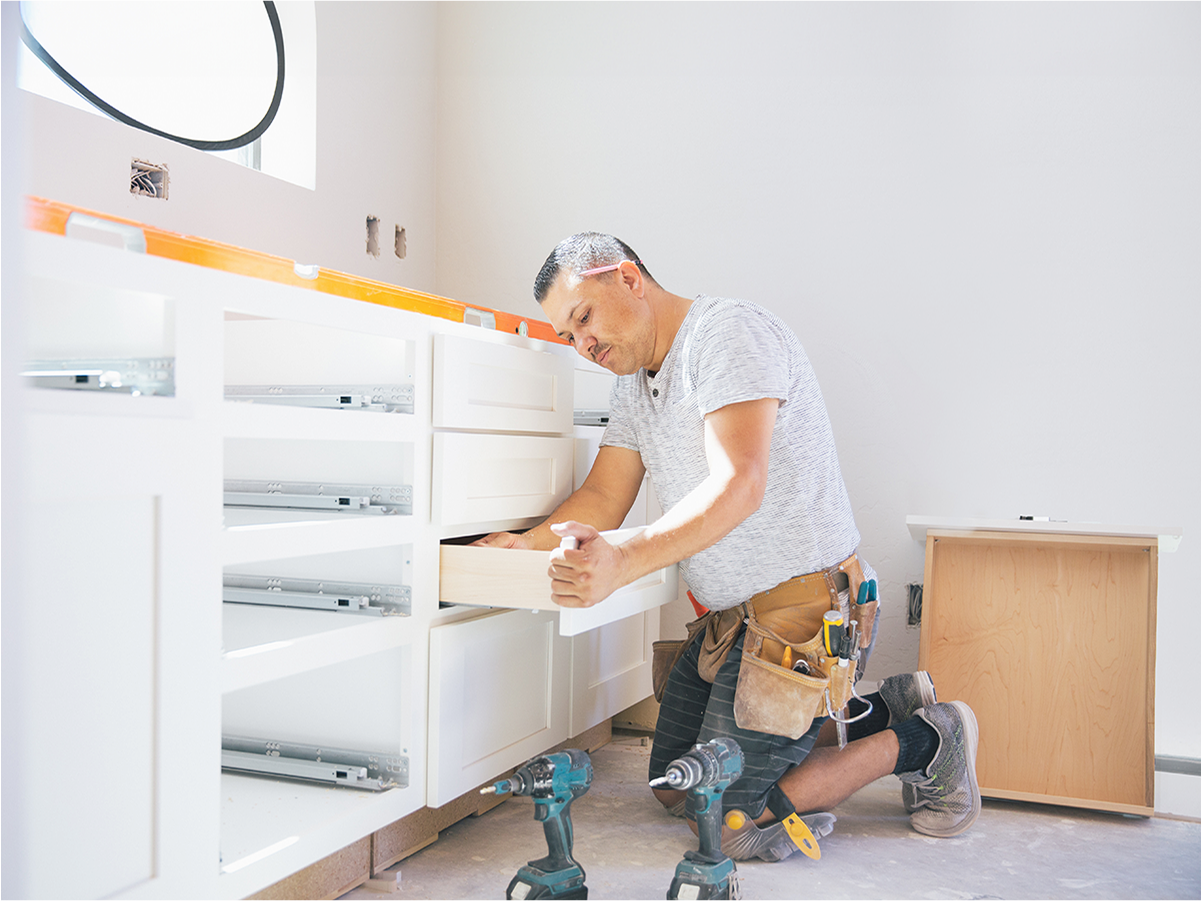
Published June 3, 2024
Expert answers to your home equity questions
Q&A with Scott Boser, SVP Director of Consumer and Mortgage Lending
Home equity loans and home equity lines of credit (HELOCs) are having a moment. Google searches for “HELOC” soared 305%1 this year and the number of equity-based accounts rose 50%2 last year. So to help our customers make informed decisions, we asked our home lending expert for his thoughts on home equity products.
Why all the buzz about home equity loans and HELOCs?
Scott: Housing prices are at near-record highs, which means houses are worth more and homeowners have more untapped equity. At the same time, mortgage rates are also higher. So rather than buy a new house, people are staying put and tapping their equity to improve their home or finance other expenses.
When do you recommend home equity products over personal loans?
Scott: HELOCs and home equity loans generally have lower interest rates than personal loans, so they’re often the better option, especially for amounts greater than $10,000 when the lower rates make a big difference. That said, I might recommend a personal loan if a customer needs less than $10,000 and can pay it back within five years.
What are the main advantages of leveraging home equity?
Scott: HELOCs and home equity loans give people access to money for a variety of uses without breaking the bank in terms of monthly payments. We’ve had customers use their equity to pay for graduate school they wouldn’t have been able to afford otherwise. Seasonal workers use it to help with living expenses during the off-season, making the minimum monthly payments until their earnings go up. There aren’t many other credit options that give you access to that kind of money with that level of flexibility.
What’s the difference between a home equity loan and a HELOC?
Scott: Home equity loans give you a chunk of money all at once. The interest rate and term length are fixed—usually up to twenty years—so you can count on consistent monthly payments. HELOCs give you access to a revolving line of credit. You can use as much of the money as you want, when you want, and have the flexibility of taking up to 20 years to pay off what you borrow. The interest rate is adjustable though, so your payments will vary. If you’re not sure what you need, check out our blog Home Equity Loan or Line of Credit: Which is Right for You?
Which is better?
Scott: HELOCs and home equity loans are both smart ways to finance major expenses. But in general, home equity loans are best for one-time costs like a new driveway, and HELOCs are better for ongoing fees like college tuition. As for interest rates, it depends. If rates go up, you’ll be glad you locked into a fixed-rate home equity loan. If they go down, you’ll benefit from a HELOC’s adjustable rate.
What are the most common uses of home equity?
Scott: The Mortgage Bankers Association2 says about two-thirds of recent borrowers used home equity loans for home improvements, and we see the same at Community Bank. Lots of swimming pools, additions, kitchen renovations. Occasionally a wedding, medical bill, or down payment on a second home. Most of our customers use HELOCs to pay for education, as an emergency fund, or for general home maintenance.
Can you use equity for a down payment on another house?
Scott: Absolutely. If you intend to sell your home, you could use the proceeds of the sale of your current home to pay off the loan or line of credit. If you were using the home equity loan or line for a down payment on a second home, the amount you borrowed is paid back over 20 years, allowing you to keep both homes. At Community Bank, you can apply for a home equity loan at the same time as a mortgage and receive a discounted rate, so you can make your hew house a home as soon as possible.
What should people think about before tapping into their equity?
Scott: Our priority is to help our customers live their best financial lives, so I advise them not to borrow more than they need. If they use a home equity product to consolidate higher-interest credit card balances, I urge them to be careful about racking up debt in the future. And I encourage people to make home improvement decisions based on what they will enjoy and not necessarily what they think will improve their home’s resale value. Rarely does the cost of the improvement equal the increase in your home’s equity; your home’s value will normally increase, but not nearly as much as the cost of the improvement.
Who’s eligible for home equity loans and HELOCs?
Scott: It’s a standard qualification process based on many elements including a customer’s credit history, capacity to repay, and the loan-to-value (LTV) ratio, which is the difference between how much they owe on their mortgage and their home’s current market value—in other words, their equity. But unlike other banks, we are able to finance up to 89% of the home’s value, where many other lenders only go to 80%.
What’s the application process like for home our equity products?
Scott: It’s super easy, and in most cases you should be able to close within 30 days. Just schedule an appointment to apply over the phone or in person. (Soon you’ll be able to apply online.) Before your appointment, review our Home Equity Line of Credit Checklist. All you’ll need is your:
- Last pay stub
- Past two year’s tax returns
- Deed for the house
- Proof of homeowner’s insurance
What should people know about our home equity loans and HELOCs?
Scott: At CBNA we’re proud that we let people borrow up to 95% and 89% of their home’s value for home equity loans and HELOCs, respectively. You’d be hard pressed to find another bank that allows more than 80%. And I’m excited about our new Better Than Prime HELine, with its remarkable rate of prime minus .5—almost unheard of these days.
Have more questions? Read our blog Unlocking Your Home's Equity: Learn About Home Equity Loans or
schedule an appointment with a CBNA loan officer.
1Google traffic analysis by RubyHome
Explore our Financial Literacy Hub and our blog for content that helps you make money decisions confidently.


